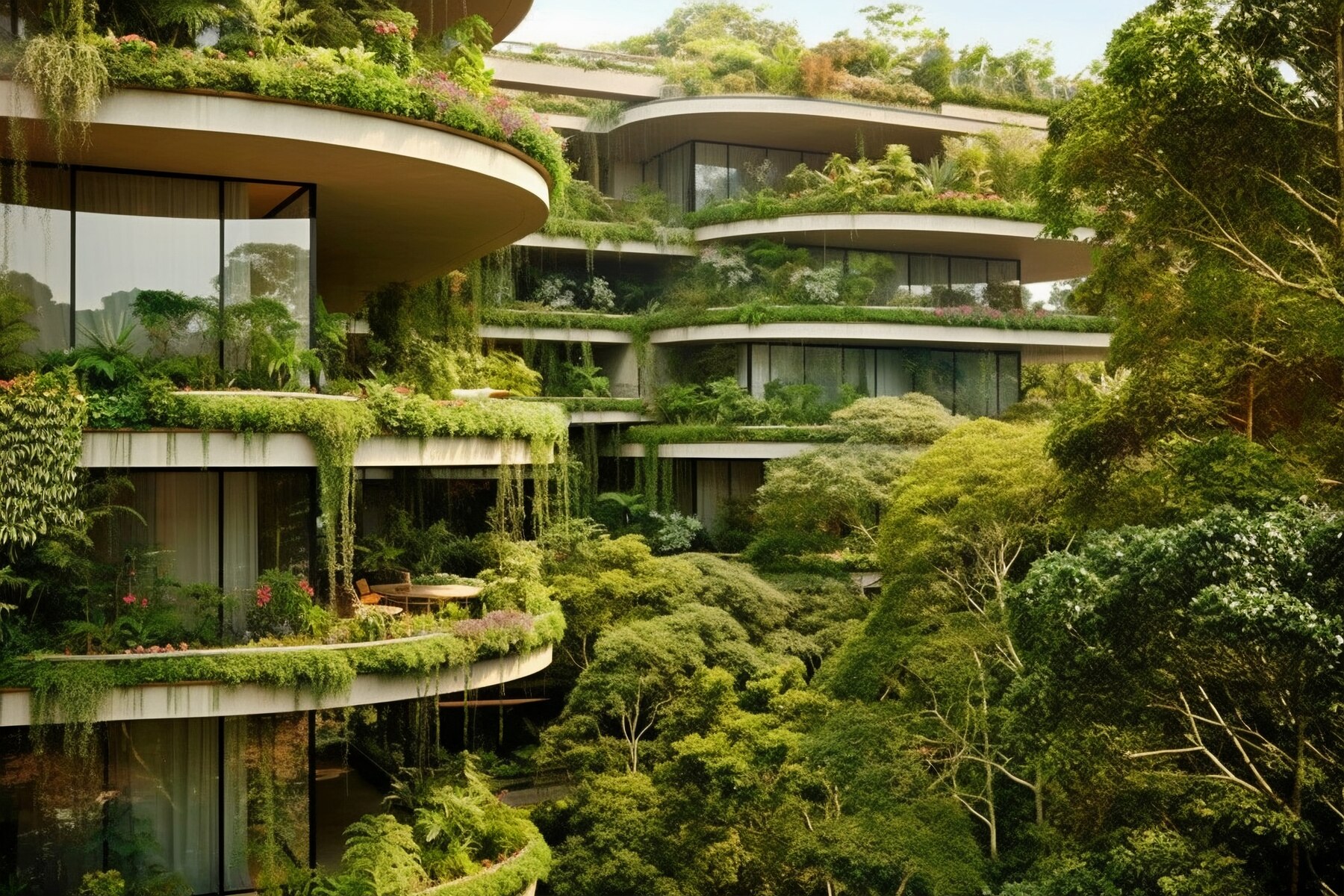Aubrey Calderwood, managing director of Gateley Capitus, provides an overview of the green incentives available for boutique hotels.
Sustainability may be a hot topic, but it is more than just a buzzword. Green credentials and practices are carrying greater weight in investment decision-making and the hospitality sector is no exception. In the hotels sector, it is evident that owners and operators are increasingly choosing to convert older buildings, especially redundant business space in city centres, into boutique hotels rather than constructing new ones. However, there is more to it than just environmentally conscious practices as sustainable development is being driven and encouraged through several green financial incentives which, in turn, is also supporting the profitability and sale of boutique hotels.
An eco demand in the hotels sector
The demand for sustainable boutique hotels has continued to grow as travellers progressively adopt a more eco-conscious approach to travel. Consumers are becoming increasingly aware of their carbon footprint and the changes they can make to reduce it. As a result, many holidaymakers are now choosing hotels that are in line with their own moral and lifestyle drivers and can offer more than just a desirable look or feel.
In addition to consumer demand, legislation is also driving a change towards more sustainable practices. The government’s proposed Minimum Energy Efficiency Standards (MEES) outline that, by 2030, all commercial rented buildings should possess an energy performance certificate rating of at least a B. This, along with the pressure to meet consumer demands, is driving a trend towards a more sustainable approach in both development and operations for hotel owners and developers looking to retrofit or refurbish redundant buildings.
Converting redundant city centre space into thriving boutique hotels
The number of redundant buildings within city centres is increasing as companies continue to re-evaluate their operations and use of business premises in a modern hybrid world. This availability has created an opportunity for developers to obtain unique city centre space, which is ideal for boutique hotels looking to operate on a smaller and more intimate scale.
While it may seem the expensive and complicated option, especially with the need to comply with fast-changing energy efficiency legislation, repurposing redundant city centre buildings comes with several incentives and benefits. From an environmental aspect, retrofitting and converting redundant buildings for new use has significant carbon emission savings compared to demolishing and rebuilding or building from new. There is much more carbon released in the construction of a new hotel compared to the conversion of an existing building where the carbon footprint of the core structural elements like concrete foundations, walls, floors and steel frames have already been incurred.
That is not to say that developers may not face expensive challenges when converting empty, contaminated or derelict buildings. Accommodating anticipated MEES changes or managing contamination issues won’t be difficult for large hotel chains that have the capital to meet sustainability pledges, but owners and operators without the same capital outlay would be well advised to make sure they are utilising the legal and financial support available to help with turning redundant buildings into thriving sustainable hotels.
Green tax incentives to support sustainable development
To encourage the renovation of existing properties, there are now a number of green tax incentives and financial products on the market, including capital allowances and land remediation relief (LRR), as well as an evolving market of green loans.
Since a series of measures announced in the November 2023 Autumn Statement, further enhanced by additional measures introduced in the 2024 Spring Budget, capital allowances for investment in plant and machinery equipment now represents a highly attractive tax incentive. Due to the nature of the expenditure being incurred, the adaptive re-use of existing properties being converted to hotel space attracts particularly high levels of capital allowances. Hotels are rich in items of plant and machinery such as heating, air conditioning, lighting and electrical installations, as well as bathrooms, gyms, spa facilities, carpets and fittings, furnishings and equipment (FF&E). In addition, while some elements of a building, such as the construction of lift shafts, do not qualify for plant and machinery allowances in new hotel developments, an investor or operator would get tax relief for the construction of a lift shaft in a property conversion. The new measures mean that the whole cost of certain items of plant and machinery can now attract 100% tax relief in the year the expenditure is incurred. Additionally, any expenditure classed as repairs to an existing property, such as re-decorating and repairing floors or walls, can also be treated as revenue deductions, which means that the whole cost of such items can be written off against tax in the year incurred.
LRR provides a generous relief from corporation tax, which can be essential in supporting property investors and trading companies with the clean-up of brownfield and contaminated sites. There is often a misconception that the relief is only available on the remediation of land, but it can equally apply to buildings in the same way. The tax relief is calculated at an attractive rate of 150 per cent of qualifying expenditure incurred by companies in cleaning up contaminated land or properties, which can make a significant cash flow contribution to development costs and help improve the profitability of a commercial property.
When converting older buildings, developers may run into contamination issues such as asbestos or cladding. The removal of such hazardous materials can be extremely costly and damaging to budgets. However, LRR can allow developers investors and operators to offset the costs of removal against tax.
Green loans: Beneficial for development, operations and sale
In addition to tax incentives, and as a result of environmental objectives within the commercial real estate sector, there has been an increase in demand for green loans and financial products. This demand is supported by lenders, who are keen to provide funding to green projects, which means there is appetite within the financial industry to support hotel developers and operators and encourage sustainable development.
That aside, green financing is increasing in popularity due to its many additional benefits. Obtaining a green loan or a sustainability-linked loan demonstrates that a developer is focused on reducing its carbon footprint and encouraging sustainable practices within the sector, such as refurbishing redundant buildings instead of building from new. Not only does this create a positive public image in the market, which is key for investors and end users who are driven by environmental matters, but also a boutique hotel refurbished in line with a comprehensive sustainability plan will appeal more to buyers on future sales or refinancing.
A holistic approach to boutique hotel development
While green financial incentives are largely marketed for encouraging and supporting sustainable development practices, such as the conversion of redundant city centre space into thriving and successful boutique hotels, their many benefits extend past the initial construction costs. In the long-term, they can, not only lead to increased profits, but also make developments indispensable to future investors. As such, hotel operators and developers are advised to seek specialist advice to ensure they are maximising the benefits of sustainable incentives throughout the complete hotel lifecycle and achieving a more holistic approach.








